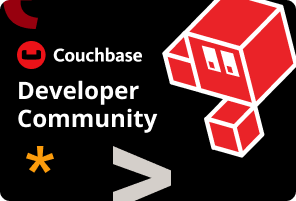Introduction to Cloud Databases: Definition & More
A cloud database is hosted on a cloud computing platform such as Amazon Web Services (AWS), Microsoft Azure, or Google Cloud. Cloud-based database solutions offer several advantages over traditional on-premises databases, including scalability, availability, and cost-effectiveness.
This page will discuss the benefits of cloud databases and the different types of cloud databases that are available. It will also provide resources for learning more about them and choosing the right one for your needs. Areas covered include:
- Why use a cloud database?
- Disadvantages of cloud databases
- Types of cloud databases
- Cloud database vs. traditional database
- Choosing a cloud database
- Cloud database solutions
- Conclusion
Why use a cloud database?
Here are some of the most common reasons organizations choose cloud databases:
Scalability: Cloud databases are highly scalable, meaning that you can easily add or remove capacity. This scalability is ideal for businesses that experience fluctuating traffic patterns.
Availability: Cloud databases are highly available, so you can be confident that your data will be accessible even if you experience an outage at your data center.
Cost-effectiveness: Cloud databases are often more cost-effective than traditional on-premises databases, especially for businesses that don’t need to own and maintain their own hardware and software.
Disadvantages of cloud databases
Although using a cloud database comes with many perks, there are some challenges you should be aware of before you decide to go with one. The challenges of choosing a cloud database solution include:
Vendor lock-in: Once you choose a cloud database provider, switching to a different provider can be difficult. This is due to a number of different reasons, including contractual obligations, business interruption, and lack of resources.
Data sovereignty concerns: If you store your data in the cloud, you should be aware of the data sovereignty laws in the country where the data is stored. Countries with stricter laws make it harder to access that data.
Performance issues: In some cases, cloud databases can experience performance issues. This is especially true if your database receives a lot of traffic.
Types of cloud databases
There are three main types of cloud databases:
- Relational databases: Relational databases are the most common type of cloud database. They use a structured query language (SQL) to manage data.
- NoSQL databases: NoSQL stands for “not only SQL,” and NoSQL databases are designed for storing and managing large amounts of semi-structured or unstructured data. They offer a variety of features that make them well-suited for modern applications.
- Hybrid databases: Hybrid databases combine the features of relational and NoSQL databases. They offer the power and familiarity of relational databases along with the high scalability, availability, and flexibility of NoSQL databases.
Cloud database vs. traditional database: What’s the difference?
The main difference between a cloud database and a traditional database is where the data is stored. A cloud database stores data on a remote server, while a traditional database stores data on a local server. For that reason, cloud databases can be more scalable and available than traditional ones, but they can also be more expensive.
Choosing a cloud database
There are a few factors to consider when choosing a cloud database, including:
- The type of data you need to store
- The size of your database
- The amount of traffic your database will receive
- Your budget
Cloud database solutions
You’ve got options, but it’s important to choose wisely. Considering the above factors, some of the best cloud database solutions include:
- Amazon Relational Database Service (RDS): Amazon RDS is a fully managed relational database service that makes it easy to set up, operate, and scale a relational database in the Amazon cloud. RDS supports a variety of popular relational database engines, including MySQL, PostgreSQL, and Oracle.
- Microsoft Azure SQL Database: Azure SQL Database is a fully managed relational database service that makes it easy to set up, operate, and scale a relational database in the Azure cloud. Azure SQL Database supports a variety of popular relational database engines, including SQL Server and MySQL.
- Couchbase Capella™: Couchbase Capella is a fully managed cloud database service for Couchbase. Capella makes it easy to set up, operate, and scale a Couchbase database in the AWS, Azure, and Google clouds. It’s a good choice for applications that store and access large volumes of data in real time.
- Cloud SQL: Cloud SQL is a fully managed relational database service that makes it easy to set up, operate, and scale a relational database in Google Cloud. Cloud SQL supports a variety of popular relational database engines, including MySQL, PostgreSQL, and SQL Server.
Conclusion
Cloud databases offer a number of benefits over traditional on-premises databases. If you’re looking for a scalable, available, and cost-effective way to store your data, then a cloud database is a good option.
Next steps
- Learn more about NoSQL databases
- Sign up for a free trial of Couchbase Capella
- Read our blog posts on cloud databases
Resources
